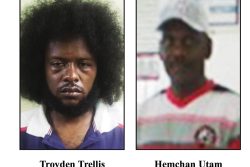 I tell the story of Tony Judt. Tony Judt was a writer on recent world history whom I greatly admired. His book “Reappraisals: Reflections on the Forgotten Twentieth Century” is a classic. He suffered and died from a motor neuron disorder, a variant of amyotrophic lateral sclerosis (ALS).
I tell the story of Tony Judt. Tony Judt was a writer on recent world history whom I greatly admired. His book “Reappraisals: Reflections on the Forgotten Twentieth Century” is a classic. He suffered and died from a motor neuron disorder, a variant of amyotrophic lateral sclerosis (ALS).
In the advanced stages of the disease – a disease which is named by doctors, appropriately one is bound to think, “the cruellest disease” – he could no longer move any of his limbs. He could not move his torso. He could still swallow, speak and move his head. But he was otherwise utterly helpless. He could not, for instance, scratch an itch. When the desire, still there in all intensity, to stretch , to point, to beckon, to bend, to shift around in any way, to stand or move or exercise came over him he had to suppress the thought and the accompanying muscle memory.
You would have thought that he would have been begging God and his loved ones to find a way to end the unendurable misery of his life. Perhaps he sometimes did so entreat them. But what we know for certain he was doing was dictating a series of memories and reflections of astonishing lucidity and quality. Thus even in extremity does life find extraordinary fulfilment. With his last breaths he was trying to say something beautiful and true.
My wife was baking a ham and the fragrance spread to where I was sitting at my desk reading. I got up to enquire but the ham, stuck with cloves and coated with pineapple jam and golden Demerara sugar, was not quite ready. I took the opportunity, being up, to put on a CD of Sarah Brightman songs and her astonishingly pure and lovely voice singing ‘I’ve Been This Way Before’ filled the room. How blessed we are in the delights of our five senses each perfectly evolved to allow us to apprehend the infinite variety of the world. Taste, smell, touch, hearing, sight – every minute of every hour they combine to fill our lives with vitality and never-ending wonder. Around and around the lamp on my desk a silvery-winged moth flew.
And so I sat again and read. There are to delight us also the complex activities of the human brain at work and play, discovering truths, dreaming wonders. I was reading about the English mathematician Paul Dirac. In the last century there have been two tremendous scientific revolutions which completely changed our way of thinking. One revolution, contained in the theory of relativity for which Albert Einstein has the credit, changed how we think about space and time. The other revolution was even more profound and changed the way we think about virtually everything in physics – but also in chemistry, in biology and in philosophy. It changed the way we think about cause and effect, past and future, fact and probability. This revolution was contained in the discovery and elucidation of quantum mechanics. And the architect, the purest and boldest thinker, in this revolution was Paul Dirac, hardly known at all compared with Einstein.
My mind filled with wonder and intellectual delight as I read of this remarkable man who remains so silent in history yet who by sheer thought transformed the world and all our lives. Enthralled at my desk, how worthwhile life seemed, how marvellous to be able to catch a glimpse of genius and feel a very little bit his insights enter my mind.
Outside my lamp-lit study, beyond the great trees in the garden, there was an absolutely clear sky, the heavens a hive of golden bees on the black branch of the night. And stretching infinitely far beyond the farthest limits of what is known the cascading galaxies collide with nothingness and one becomes entitled to imagine God.
The glory of being alive. I think of Tony Judt signalling to the end from the iron prison of himself. I think of Paul Dirac and the extraordinary equations in his mind. I think of the starry heavens reaching ever outwards, reaching out for what and why? And now my wife calls out – the ham is baked and ready and I can come and get a first, fragrant slice if I want.








